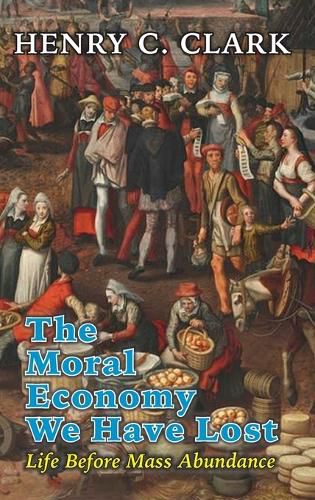Readings Newsletter
Become a Readings Member to make your shopping experience even easier.
Sign in or sign up for free!
You’re not far away from qualifying for FREE standard shipping within Australia
You’ve qualified for FREE standard shipping within Australia
The cart is loading…






THIS LANDMARK WORK of cultural synthesis clearly debates fundamental historical issues of morality, government, autonomy, power and self-responsibility, labor, exchange, household economy and consumption. It offers a wide-ranging social-historical assessment of the moralization of economic conduct among ordinary people in pre-modern Europe. Its detailed survey presents a microcosmic view of the human condition. It resets the baseline for critical assessments of modern "capitalism" by offering an alternative to one of the most successful theories of the past half-century: E.P. Thompson's famous paradigm of the "moral economy." This book casts modernity itself in a new light. It records and analyses many of the ordinary activities of ordinary people with a sympathy and a kindly wit which brings them to life after the lapse of centuries, uncoloured by the heroics of popular but unhistorical romanticism. Professor Clark's observations are shrewd, real, compassionate, historically-based, and unsentimental. The work highlights fundamental understandings of the most fascinating sources and vignettes. It shows the richness and variety of human character and the implications of the social and moral changes which took place.
$9.00 standard shipping within Australia
FREE standard shipping within Australia for orders over $100.00
Express & International shipping calculated at checkout
THIS LANDMARK WORK of cultural synthesis clearly debates fundamental historical issues of morality, government, autonomy, power and self-responsibility, labor, exchange, household economy and consumption. It offers a wide-ranging social-historical assessment of the moralization of economic conduct among ordinary people in pre-modern Europe. Its detailed survey presents a microcosmic view of the human condition. It resets the baseline for critical assessments of modern "capitalism" by offering an alternative to one of the most successful theories of the past half-century: E.P. Thompson's famous paradigm of the "moral economy." This book casts modernity itself in a new light. It records and analyses many of the ordinary activities of ordinary people with a sympathy and a kindly wit which brings them to life after the lapse of centuries, uncoloured by the heroics of popular but unhistorical romanticism. Professor Clark's observations are shrewd, real, compassionate, historically-based, and unsentimental. The work highlights fundamental understandings of the most fascinating sources and vignettes. It shows the richness and variety of human character and the implications of the social and moral changes which took place.